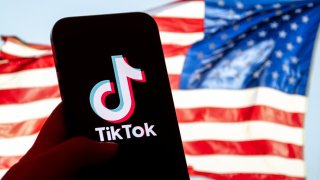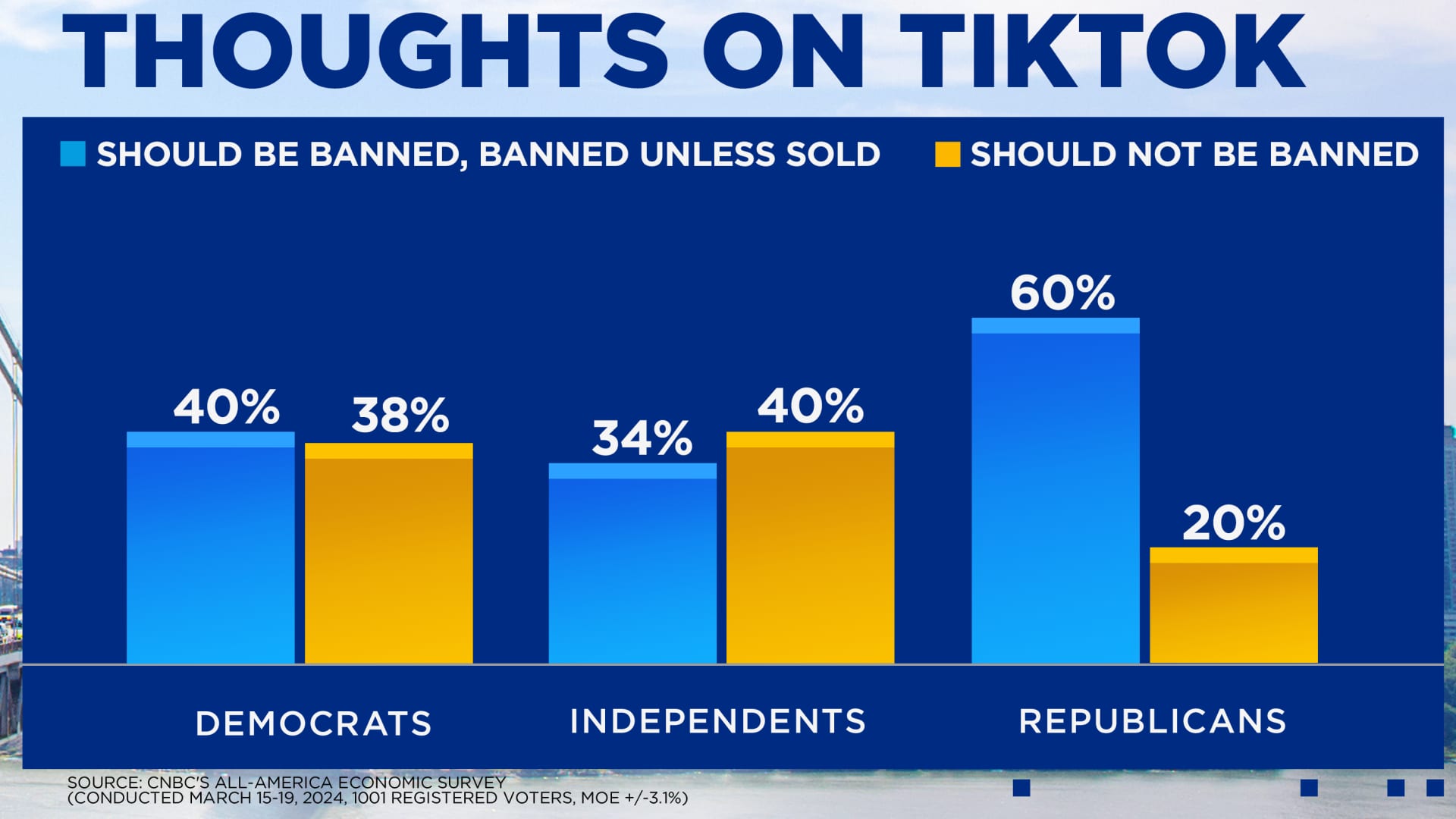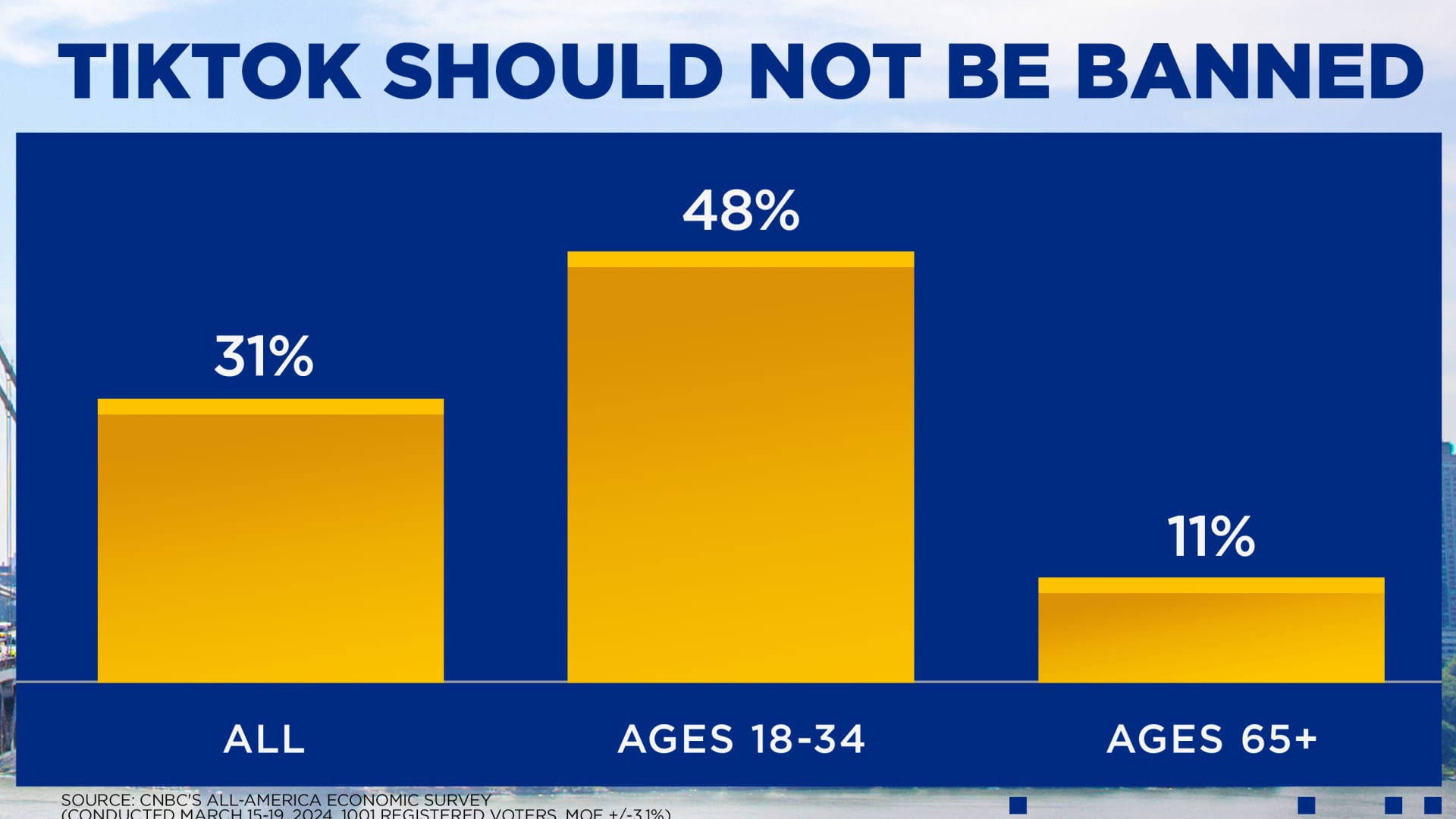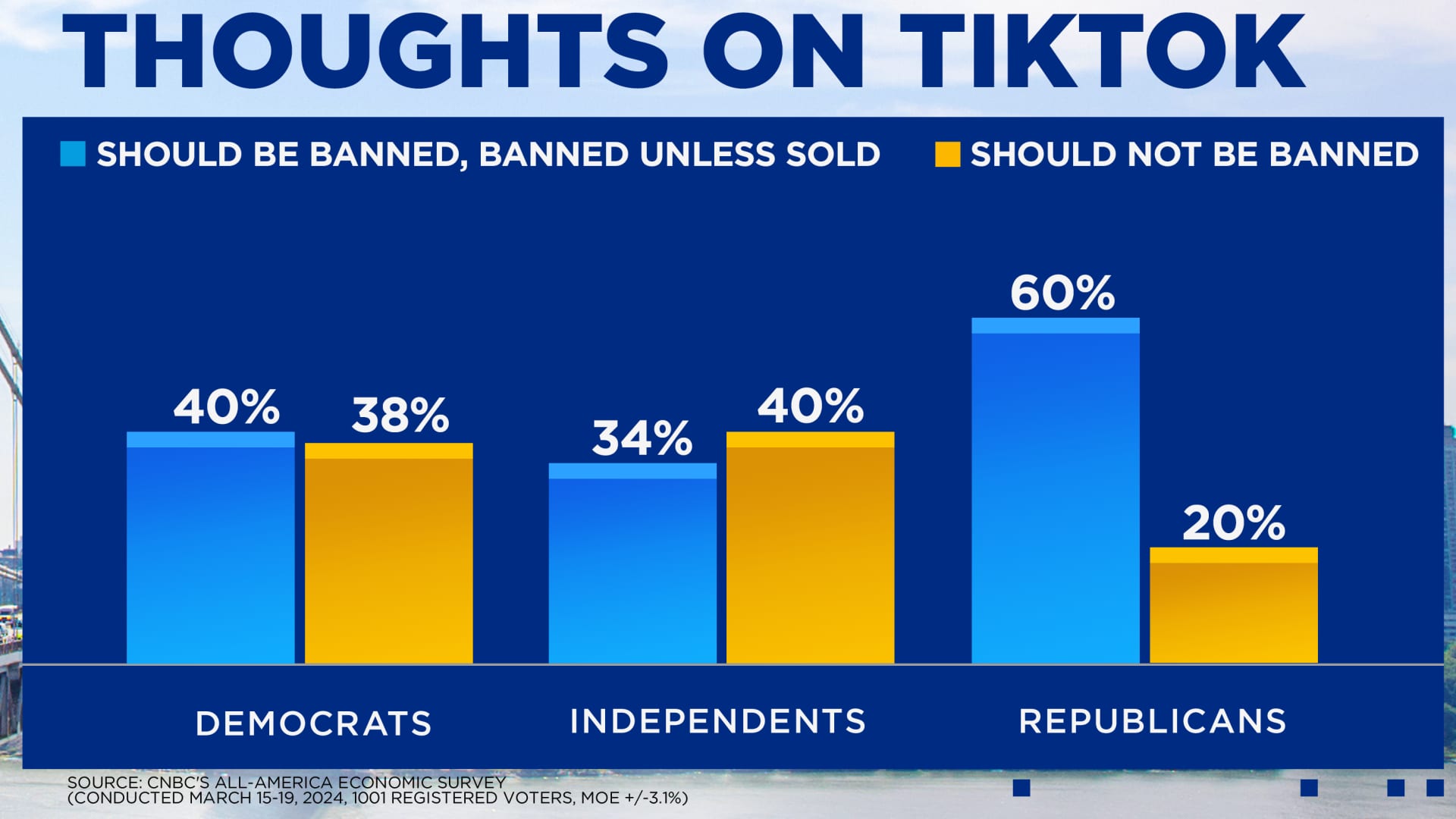
- Nearly half of participants in the latest CNBC All-America Economic Survey say that TikTok should be banned or sold to a non-Chinese company.
- Forty percent of Democrats and 60% of Republicans support a ban or a sale of the social media service, the survey found.
Nearly half of Americans are concerned enough about TikTok being a threat to national security that they support banning the social media service or forcing a sale to a non-Chinese company, according to the latest CNBC All-America Economic Survey.
But the poll also found substantial differences of opinion on the issue based on politics, age and those who use the app versus those who don't.
Get Southern California news, weather forecasts and entertainment stories to your inbox. Sign up for NBC LA newsletters.
The nationwide survey of 1,001 Americans revealed that 20% of participants said TikTok should be banned no matter what. Another 27% said it should be banned unless it's sold to a non-Chinese company, meaning that altogether, 47% of participants support a ban or a sale.
Just over 3 out of 10 people surveyed oppose a ban.

The poll was conducted March 15-19, kicking off just days after the House of Representatives overwhelmingly passed a bipartisan bill giving TikTok's owner ByteDance about six months to divest or face a ban. The Senate has yet to take up the bill.
Money Report
ByteDance has launched a comprehensive strategy to mobilize American opposition against the ban. Tactics include testimonial videos featuring TikTok CEO Shou Zi Chew. There have even been protests staged outside the U.S. Capitol.
More than 500,000 posts on the social media app use the hashtags #KeepTikTok or #SaveTikTok, and they largely consist of videos featuring users who are against the ban.
The poll also found that younger Americans in particular aren't in favor of disallowing TikTok. While 31% of participants in the CNBC poll oppose a ban, the number rises to 48% among the 18- to 34-year-old cohort. In the 65 and older category, just 11% are against blocking the app. Of survey participants who are also daily TikTok users, about two-thirds think the government should not prohibit the social media app.

"You're taking away our First Amendment rights," TikTok user Ophelia Nichols told CNBC in an interview. Known as "shoelover99" on the social media app, Nichols boasts more than 12.5 million followers.
"People don't understand. This is a community. It's a family," she added. "Whatever it is that you enjoy or that makes you smile, you will find someone else on the app that loves that too."
Nichols, who creates lifestyle content and lives in Alabama, traveled to the Capitol when she heard about the possible ban. Nichols said TikTok didn't ask her to join the protest.
Differences among political lines
Among survey participants, 40% of Democrats were in favor of a ban or forced sale, while 38% were opposed. Meanwhile, 34% of independents supported a ban or sale, while 40% were against it. Six out of 10 Republican participants approved a ban or forced sale, even as former President Donald Trump in a CNBC interview opposed blocking the app.

The issue may be more fraught for Democrats and President Joe Biden than for Republicans and Trump. Biden looks to be struggling to hold his winning coalition together. Further, he already has problems with the youth vote, the survey found.
In the CNBC poll, Biden's approval is 39% overall, rising 4 points from the prior survey to land just a point below the long-run average for his presidency. However, it was unchanged for voters aged 18 to 34 at 33%, 7 points below the long-run average for the group's approval rating of the president.
It's unlikely that TikTok will be the deciding factor for many votes, but with the candidates in a virtual dead heat, it could play a peripheral role in a race where small margins may matter.
Also, TikTok supporters have a substantial platform where they can voice their discontent.
V Spehar, host of "Under the Desk News," a short-form news show, has more than 3 million TikTok followers and is worried about keeping them. "People say, 'If we shut down TikTok, they'll go follow you on Meta,' which is not true," Spehar told CNBC. "And it's not true for so many people. Otherwise, we would."
Perhaps, the best outcome from a political perspective could be a seamless sale that users don't notice.
However, this could only be the beginning of a series of issues that set national security, as well as social and cultural concerns, against tech freedoms. At the same time, it pits young against old and the tech savvy against those who are less so.
For the full results of the survey click here.






